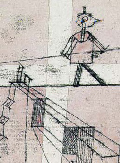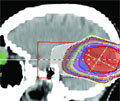The eLitMed.hu medical portal uses computer cookies for convenient operation. Detailed information can be found in the Cookie-policy.
Lege Artis Medicinae - 2003;13(05)
Content
[End-of-life care]
[Recently, physicians and medical literature are more concerned about end-of-life care. A review is given of studies dealing with the rights of the dying patient, with advance directives and with possible treatments in the last days of life. A survey was done in author's department on medical therapy of the terminal period of 103 inpatients, died between 01. 10. 2001. and 31. 03. 2002. Comparing these data with those of American, Finnish etc. authors, the treatments seem to be more generous - probably because in Hungary it is not (yet?) usual to ”declare” endof- life care and to withdraw active therapy. However, indication of antibiotics seems to be more clinical (28.1%, vs. 42%-88% given by similar foreign data). Antibiotics are not palliative means, however, they may be administered in the last days, if the patient is suffering from a terminal infection. Indications and choice of antibiotics are suggested in these cases; medical and ethical problems discussed. Physicians can relieve the physical and mental distressing symptoms of the dying patient and ensure human dignity and peace of the last days.]
[Palliative chemotherapy of solid tumors]
[Palliative chemotherapy, as defined, a cytotoxic treatment where the expected result is not sufficient enough to cure the patient but it could relieve the cancer related symptoms. In other words, it is such a treatment where the chance of symptomatic improvement means an overall advantage to the patient compared to the possible disadvantages of toxicity. In the 70s and 80s, only the objective response rate, relapse free interval, and overall survival rates were selected as endpoints when the activity of anticancer agents were investigated. In these studies it was observed that a considerable amount of patient showed significant symptomatic improvement even though the treatment was ineffective according to the measured endpoints. Today, the measurement of quality of life is one of the standard endpoint of such studies. Moreover, quality of life is considered as the most important independent factor when palliative chemotherapy is initiated. It should be noted that remission is not the only and final benefit of chemotherapy. The role and options of palliative chemotherapy in certain tumors are discussed.]
[Indications of palliative radiotherapy]
[Radiotherapy - as a part of complex, multidisciplinary therapy - indicated in 70% of patients with malignant tumors during the natural course of the disease. Unfortunately, around 40-50% of patients can not be cured due to the advanced stage, recurrence or dissemination of the disease. In such cases radiotherapy with palliative intention can be used to resolve symptoms, decrease tumor burden and increase the quality of life for the patient. Urgent radiotherapy can overcome special symptoms causing acute life-threatening conditions. The author reviews the main indications, radiotherapy techniques, dose-fractionation schedules and treatment results of palliative and urgent radiotherapy used in the daily clinical practice.]
[Easing nausea and vomiting in terminally ill cancer patients]
[Nausea and vomiting are very frequent problems in terminally ill cancer patients, with many causes in the background. Repeated vomiting considerably affects patients' quality of life and may also cause numerous complications requiring hospitalization. In palliative care these symptoms need to be alleviated knowing that triggering causes persist. To provide effective symptom control we need to understand the triggering mechanism of vomiting as well as to have a deep knowledge of most important antiemetics and to give efficient drugs regularly.]
[Therapy of high-intensity cancer pain]
[Although cancer pain is usually a chronic one, in certain cases it needs emergency treatment due to its intensity. By the temporal appearance of pain the author discusses separately the possibilities of treatment of the continuous and the episodic (breakthrough) pain and refers particularly to the neuropathic pain. It is stressed that opiate-responsive continuous severe pain can be diminished most quickly by giving morphine intravenously and a recommendation is drafted how to perform it rapidly but safely. Finally, it is emphasized that the absence of pain analysis and appropriate drug therapy is the most important factor of inadequate pain relief up to now.]
1.
Clinical Neuroscience
Is there any difference in mortality rates of atrial fibrillation detected before or after ischemic stroke?2.
Clinical Neuroscience
Factors influencing the level of stigma in Parkinson’s disease in western Turkey3.
Clinical Neuroscience
Neuropathic pain and mood disorders in earthquake survivors with peripheral nerve injuries4.
Journal of Nursing Theory and Practice
[Correlations of Sarcopenia, Frailty, Falls and Social Isolation – A Literature Review in the Light of Swedish Statistics]5.
Clinical Neuroscience
[Comparison of pain intensity measurements among patients with low-back pain]1.
Clinical Neuroscience Proceedings
[A Magyar Stroke Társaság XVIII. Kongresszusa és a Magyar Neuroszonológiai Társaság XV. Konferenciája. Absztraktfüzet]2.
3.
Journal of Nursing Theory and Practice
[A selection of the entries submitted to the literary contest "Honorable mission: the joys and challenges of our profession" ]4.
Journal of Nursing Theory and Practice
[End of Life and Palliative Care of Newborns in the Nursing Context]5.
Journal of Nursing Theory and Practice
[Aspects of Occupational Health Nursing for Incurable Patients ]







